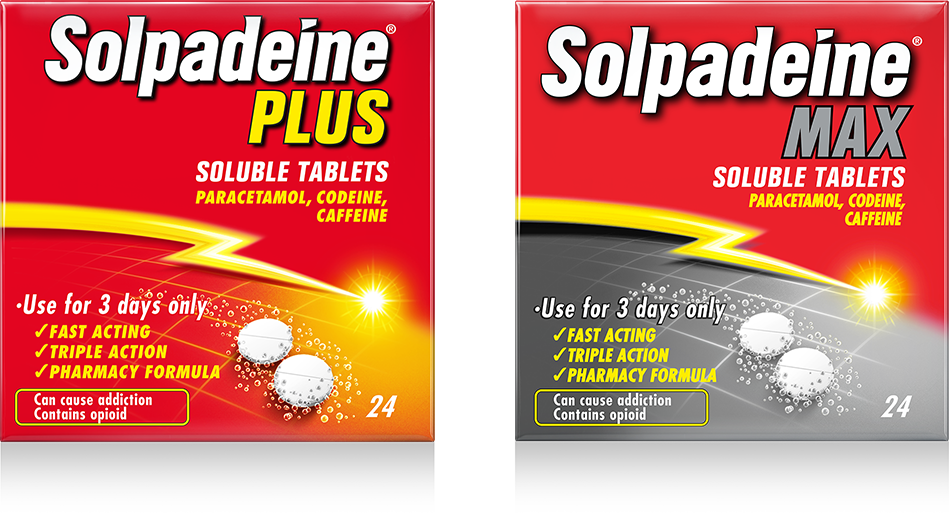Understanding different types of head pain
From a dull ache when we are feeling a bit overtired, to more painful throbbing or stabbing sensations in our skulls and flashing lights before our eyes…
Aug 18 2021 · 3 min read

Coughing, sneezing, runny noses and painful sinuses – when winter ailments strike it’s hardly surprising that you can end up with a thumping headache as well, but how can you tell if you’re about to be landed with a cold, or flu?
Colds and flu are caused by different viruses, but can have very similar symptoms, including headache. A simple way to tell them apart is that:
• Influenza (flu) is a respiratory illness that affects the lungs.
• Colds are most commonly caused by a rhinovirus or a coronavirus, but only affect the upper respiratory tract (nose and throat), not the lungs .
There are other ways in which cold and flu symptoms differ.
• a sudden high temperature of 38C or above
• body aches
• feeling tired or exhausted
• a dry cough
• a headache
• sometimes a runny nose and sore throat[i]
Flu symptoms usually come on very suddenly and last for around a week[i]. They can really wipe you out and make you feel too poorly to get on with your normal activities.
Getting plenty of rest and keeping warm can help you recover from flu. Try to drink lots of water to avoid dehydration (your pee should be light yellow or clear), and take paracetamol or ibuprofen to lower your temperature and treat aches and pains[ii].
You don’t need to isolate if you have flu, but it’s better to stay at home if possible to avoid spreading the virus. You can call your local pharmacist for advice on the right medicines to help you treat flu, and some even offer a delivery service or online ordering if you have no one to pick them up for you.
Unlike flu, the symptoms of a cold come on gradually and are much less severe.
Cold symptoms usually include:
• Sneezing (unlike flu)
• muscle aches
• a blocked or runny nose
• a sore throat[i]
Sometimes cold symptoms include:
• headache
• cough
• a raised temperature
• pressure in your ears and face
• a loss of taste and smell[i]
Just as with flu there’s no cure for the common cold, but you can look after yourself at home by keeping warm, getting plenty of rest and staying hydrated if you have a cold. Taking over-the-counter painkillers such as paracetamol or ibuprofen will help to reduce any fever or discomfort and your pharmacist can answer any questions you have about what medicine to take.
Solpadeine has a variety of effective pain-relieving tablets, soluble tablets and capsules that can help treat the aches, pains and headaches associated with colds and flu – with the soluble tablets in the Solpadeine range getting to work 2x faster than paracetamol tablets*.
• Solpadeine Headache Soluble Tablets contain a dual action formula of paracetamol and caffeine
• Solpadeine Max Tablets contain a dual action formula of paracetamol and codeine
• Solpadeine Max Soluble Tablets contain a triple action formula of paracetamol, codeine and caffeine
• Solpadeine Plus Tablets, Capsules and Soluble Tablets contain a triple action formula of paracetamol, codeine and caffeine
• SolpaOne Soluble Max Strength Paracetamol Tablets contain 1000mg paracetamol
*Based on absorption data
Most adults recover from a cold in within a week or two, but symptoms can persist for up to three weeks. Contact your GP or NHS 111 by phone if your symptoms do not improve after three weeks or suddenly worsen, you have a very high temperature, find it hard to breathe or develop chest pain[i].
Similarly, you should contact NHS 111 immediately if you have flu symptoms for more than 7 days, and call 999 if you suddenly develop chest pain, begin coughing up blood or have difficulty breathing[i].
Remember, some signs of cold and flu can be similar to the symptoms of coronavirus, such as fevers and a new unexplained cough, or a loss of taste and smell[i]. It’s important you book a free coronavirus test if you experience one of these symptoms and self-isolate while you wait for your results.
References:
i. Cold, flu or coronavirus: which is it?
https://www.bhf.org.uk/informationsupport/heart-matters-magazine/news/coronavirus-and-your-health/coronavirus-symptoms-cold-flu-or-coronavirus#Heading11
ii. NHS Condition: flu
https://www.nhs.uk/conditions/flu/
iii. NHS Conditions: cold
https://www.nhs.uk/conditions/cold-common/pages/introduction.aspx/amp/
From a dull ache when we are feeling a bit overtired, to more painful throbbing or stabbing sensations in our skulls and flashing lights before our eyes…
From keeping hydrated and getting enough sleep, to cutting out alcohol and managing stress, there are lots of ways to head off a headache before it starts.
From tablets and capsules, to liquids and creams, pain relief medicines come in a range of ‘formats’ and people often…
Solpadeine® Max Soluble Tablets, Paracetamol 500mg, Codeine Phosphate Hemihydrate 12.8mg, Caffeine 30mg For the treatment of acute moderate pain which is not relieved by paracetamol or ibuprofen alone. Contains codeine. Can cause addiction. Use for 3 days only. Always read the leaflet.
Solpadeine® Headache Soluble Tablets contain Paracetamol and Caffeine – a mild analgesic and antipyretic formulated to give extra pain relief. Always read the leaflet.
Solpadeine® Plus, Solpadeine® Max and Solpadeine® Headache products are not recommended for children under 12 years of age.
SolpaOne® 1000mg Effervescent Tablets contains paracetamol. For the treatment of mild to moderate pain and/or fever. For adults and adolescents over 50kg of body weight aged 16 years and above. Always read the leaflet.
Same trusted formula
Now in 3 day treatment packs, in line with guidance

*New pack size of 24 soluble tablets for 3 day use in adults